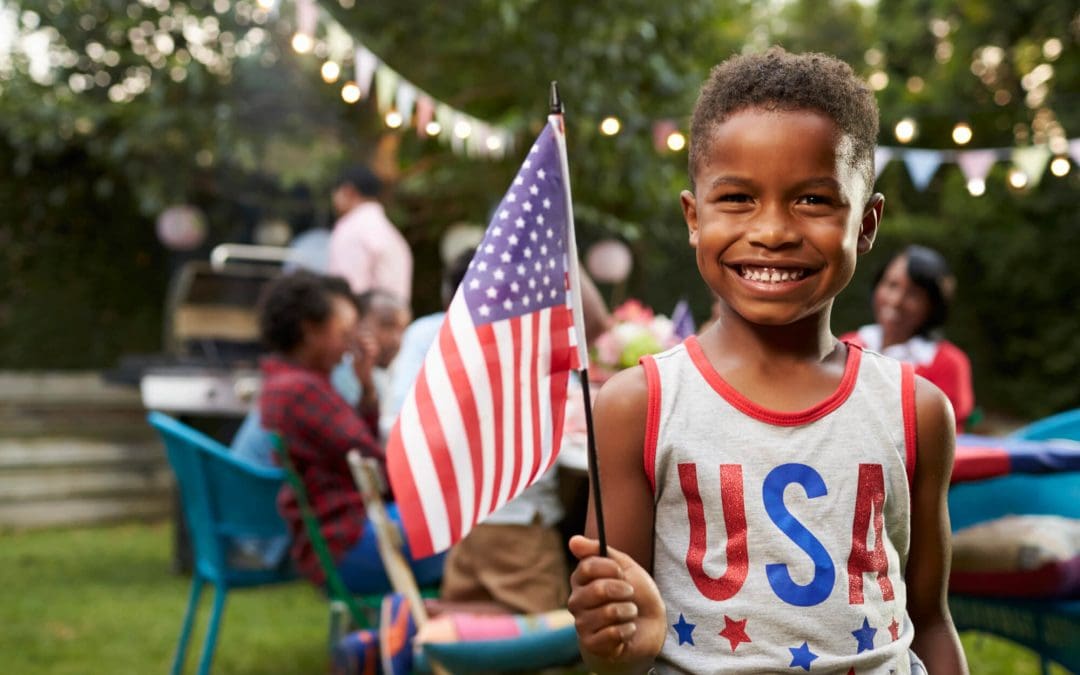When people think about 4th of July safety, fireworks are usually the first thing that comes to mind. While firework safety matters, fireworks are not the only thing that can send your celebration sideways. From overlooked backyard hazards to heat-related risks, there are several things people forget to plan for—and they’re just as important. You can go big, have fun, and keep everyone out of the emergency room by staying sharp about the details that often get missed. Here’s what you might not be thinking about—but should.
4th of July Safety Basics: Watch Where You Set Up the Grill
Too many people fire up the grill without checking their surroundings. A gas or charcoal grill should never be used on a covered porch, next to a fence, or under a tree. It also shouldn’t be near any outdoor decorations, plastic furniture, or siding. Once flames or heat get going, it only takes a second for the wrong surface to catch.
Before you light anything, take a quick walk around the grill. Look up and down to make sure nothing flammable is nearby. You’ll also want to double-check gas lines and make sure your grill is sitting level on solid ground. If it wobbles or looks unstable, fix it before you cook.
Keep Your Pets Away From the Action
Independence Day can be a nightmare for pets. Loud noises, crowds, and strange smells stress them out. Fireworks can trigger panic, and open gates or busy yards create the perfect chance for a pet to bolt.
Keep dogs and cats inside, preferably in a quiet room where they can’t hear much of the chaos outside. Don’t bring them to parades, fireworks shows, or parties with a lot of food scraps and unfamiliar people. It might seem fun to include them, but most pets are better off sitting this one out.
Stay Hydrated—Even If You’re Not in the Sun
Dehydration sneaks up fast, especially during long, hot afternoons. You don’t have to be laying out in the sun to get overheated. Grilling, yard games, or even just standing around on a patio can wear you down.
Water should be easy to grab all day—not soda, not beer, just water. If you’re hosting, stock a cooler with bottles and remind people to drink something non-alcoholic between rounds. If you’re a guest, bring your own and stay ahead of the heat.
4th of July Safety for the Kids
It’s easy to think someone else is watching the kids, especially at a party. But accidents around water happen fast, even in shallow areas like plastic pools or water tables. Supervision needs to be intentional and constant.
Set clear boundaries about who’s watching which kids and when. Don’t assume people will step in. If a child is playing in or near water—even something that seems harmless—someone should have eyes on them the entire time.
Check Local Fireworks Laws (They Change More Than You Think)
A lot of people assume the laws are the same every year. They’re not. Local ordinances change all the time, especially when drought conditions or fire risks are involved. Even if you lit the same fireworks last summer, they might be banned this year.
Before you stock up, check your city or county’s website for updated fireworks laws. You’ll also want to see if there are burn bans or restrictions on sparklers, smoke bombs, or firecrackers. Avoid the fine—and the fire hazard—by knowing the rules.
Don’t Forget About Cleanup
After the party’s over, it’s easy to forget how much mess fireworks, food, and outdoor activities can leave behind. But smoldering debris, hot coals, and trash can all become problems long after the sun goes down.
Firework remnants should be soaked in water before they go in the trash. Grills need to cool completely before being covered or moved. Anything left on the lawn—like used sparklers, skewers, or bottle caps—needs to be picked up before someone steps on it barefoot the next morning.
Want to enjoy the 4th without the hassle? Remember the details people usually miss. It’s the forgotten stuff that causes the biggest problems.
4th of July Safety FAQs
Can I let my dog stay outside during fireworks if they’re used to it?
Even the calmest dogs can react unpredictably to fireworks. They might try to jump fences or dig out. It’s safer to bring them inside and keep them away from windows.
How do I treat a minor burn from a sparkler or grill?
Cool the area with clean water, cover it with a sterile bandage, and avoid popping any blisters. If it’s larger than a couple of inches or looks deep, get it checked out by a doctor.
Are sparklers safe for kids?
Sparklers burn at over 1,000°F and cause a lot of holiday-related injuries every year. If you let older kids use them, make sure they’re supervised closely and never barefoot.
What’s the safest way to dispose of used fireworks?
Soak them in a bucket of water for several hours before throwing them out in a metal trash can. Never toss warm fireworks in regular garbage. They can reignite.
360 Home Inspections provides inspection services to Northern New Jersey. If you’re buying or selling a home, contact us to request an appointment.

